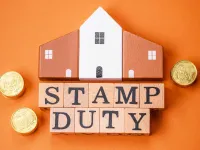Conveyancing Solicitors in Leeds and Yorkshire
Our team has a reputation for high-quality legal advice and excellent customer service, as shown in our 5-star reviews.

Attracting work through our well-earned reputation, we ensure you get the care and advice you need.
As an experienced conveyancing department, we aim to make the process as stress-free and efficient as possible. All our clients deal with a dedicated individual who will guide them through every step of the process.
Contact our conveyancing experts for further advice on how we can help you.
What is the conveyancing process?
The conveyancing process involves the steps taken to transfer the legal ownership of property from the seller to the buyer.
Conveyancing process for sellers
The conveyancing process for sellers involves the following steps:
- The seller accepts an offer on their home.
- The seller instructs a solicitor and proof of ID checks are done.
- The seller’s solicitor gathers information from the seller about the leasehold or freehold, the contents, fixtures, and fittings.
- The title deeds are obtained.
- The draft contract and documentation are sent to the buyer’s solicitor who checks them and raises any enquiries. Once agreed upon by both sides, the contracts are signed.
- Exchange of contracts and completion are arranged.
- The solicitor checks the transfer deed and handles the payment made by the buyer. Once fees are deducted the remaining funds are transferred to the seller.
Conveyancing process for buyers
The conveyancing process for buyers involves the following steps:
- The buyer makes an offer on a house that is accepted by the seller.
- The buyer instructs a solicitor and proof of ID checks are done.
- The buyer arranges a survey and applies for a mortgage.
- The buyer’s solicitor obtains the contract pack and raises any enquiries with the seller’s solicitor. Once agreed upon by both sides, the contracts are signed.
- Searches are completed on the house.
- The buyer arranges for the deposit money to be transferred to their solicitor.
- A transfer deed is drafted and sent to the seller’s solicitor.
- Exchange of contracts and completion are arranged.
- The solicitor checks the transfer deed and handles the payment made by the buyer.
- The property is registered with the Land Registry.
How long does the conveyancing process take?
Typically the conveyancing process can take around 8-12 weeks, however, this really depends on many different factors.
The time it takes is dependent on how quickly each side can gather the information that the solicitors need to process the sale. Also, if there is a conveyancing chain, the process can take longer which is often out of your hands.
What documents are needed for conveyancing?
The documents needed for conveyancing vary depending on the type of property you are buying and whether you are the seller or the buyer.
However, regardless of whether you are selling or buying, you will always need to provide proof of identification and proof of address. This will include providing a passport or driving license along with a utility bill.
What documents do solicitors need when selling a house?
Conveyancing solicitors will generally need the following documentation when selling a property:
- Proof of ownership - the property title deeds
- Seller’s Property Information Form
- Certificates (such as EPC), guarantees, warranties (such as window installation or boiler warranties), and planning permission documents (if any work has been completed on the house)
- Fitting and Contents Form detailing everything that will remain in the property
- Leasehold or shared freehold information
- Mortgage information
It may be that further information is required for your individual situation.
What information does a solicitor need when buying a house?
Conveyancing solicitors will generally need the following information when buying a property:
- Proof of funds - bank statements showing that you have enough money for the deposit or cash funds to buy the house
- A mortgage offer from a valid lender
It may be that further information is required for your individual situation.
Do I need a survey when buying a house?
The general principle is that it is the buyer’s responsibility to be satisfied with the general condition of the property purchased. Provided a buyer is not misled by the seller, they cannot complain after the exchange of contracts and completion as to its condition.
If a mortgage is being obtained, a valuer on behalf of the lender will inspect the property, but only usually to ensure that the value of the property is more than the amount borrowed.
In practice, the same valuer, on payment of a fee, will carry out a more detailed report, which can be relied upon if you, as the buyer, later discover a problem with the property.
If perhaps you are not purchasing the property using a mortgage, then it is wise to get an independent survey as you want to ensure that the property is structurally sound and that you do not experience any unwelcome surprises once the sale has gone through.
A survey will give you details about any issues in the property such as damp, subsidence, or slipped tiles on the roof for instance. It will also provide an explanation of the work that may need to be done on the property to make sure that it is safe. A survey is helpful to give you an idea of everything you must be aware of before taking the plunge.
Do you need a solicitor to buy a house?
Technically, you do not need a solicitor to buy a house, but you will need a qualified person to go through the legal and administrative process of purchasing a property.
It is advised that you instruct a regulated organisation or individual to assist you with the transaction in order to avoid property fraud scams.
What does a conveyancing solicitor do?
A conveyancing solicitor handles the whole conveyancing process from start to finish.
It is the role of the conveyancing solicitor to deal with the legal transfer of property ownership.
They will liaise with the other party’s solicitors and request the correct documentation they need to follow their checks.
- They will go through the contract package
- They will complete searches on the property by applying to the local authority
- They will check the survey (if applicable) to see if there is anything to be aware of
- They will request official title documents from the Land Registry
- They will check how much is outstanding on the mortgage (if applicable)
- They will verify the exchange of contracts and complete the legal transaction
Our residential property service in Leeds
Our professional residential property service includes assistance in the following areas:
- Buying or selling property
- Property in probate
- Help with Stamp Duty Land Tax
- Remortgaging
- Changing names on title deeds
- Lease extensions
- Buy-to-Let
- Gifting- transferring equity
Fully Regulated Conveyancing Professionals in Leeds
If you are looking for an experienced solicitor to buy a house in Leeds or to help you through the conveyancing process as a seller or investor, we are on hand to assist with all your needs.
We pride ourselves on providing a high-quality and reliable service through clear communication and specialist guidance.
Fixed fee
We will give you an honest and fair quote based on the details you give us about your situation. Our service will often include a fixed fee conveyancing quote.
What is a Conveyancing Quality Scheme (CQS) approved practice?
We are an approved Conveyancing Quality Scheme (CQS) practice. This means that we are regulated by the Law Society to ensure high standards in the home buying process and to prevent fraud in the residential property market.
What our clients say about our conveyancing service
Our clients value our communicative, cost-effective, and speedy residential conveyancing services. With over 2000 5-star reviews we are positive that we can meet your high expectations.
At Winston Solicitors, our clients are our first priority which is why we tailor our service to your needs.
We offer:
- Bespoke legal solutions to suit your conveyancing needs
- A cost-effective yet efficient property service
- Late evening appointment openings so that we can fit around your schedule
- On-site parking for easy access
- Wheelchair user access
- An office space outside of the centre of Leeds
If you are looking for the best conveyancing solicitors in Leeds we would be delighted to assist you.
How to contact our residential conveyancing solicitors in Leeds
Our specialist conveyancing solicitors in Leeds have a wealth of experience and are able to deal with both simple and complex cases comprising freehold, leasehold, registered and unregistered property.
We help to ensure that your transaction is dealt with in an efficient and professional manner with updates provided at each key stage of the process.
If you need to instruct a conveyancing lawyer in Leeds, get in touch with us today. We are always happy to help you.
Contact our friendly team of solicitors for residential conveyancing in Leeds by emailing info@winstonsolicitors.co.uk or call us on 0113 320 5000.
Alternatively, complete our contact form for further information on our conveyancing services and we will get in touch with you.
We are based in Leeds, for more information on how you can get to us visit our contact page.
The Private Law Team are Focused on Providing You With the Best Advice
Conveyancing is the legal transfer of property ownership from one person to another.
Yes, you can buy a property without a solicitor however, you will need to instruct a regulated and qualified person to arrange the legal and administrative documentation that is required to legally transfer ownership of property.
The solicitors' fees for buying a house can vary from around £400- £1500.
The conveyancing fees are dependent on different factors such as whether you are a first-time buyer or not, whether additional legal work would be required, or whether the house is freehold or leasehold.
Many solicitors offer a fixed fee for conveyancing so that you are aware of how much you will need to pay from the outset. This fee often doesn’t change unless unexpected costs come up.
Finding a good conveyancing solicitor can be difficult as there are many around. The best way is to ask friends and family if they have any recommendations and by looking at reviews online.
If other people have had a good experience, then it is likely that you will receive the same service. You can also look on a conveyancing solicitors’ website to see if they give any information about the conveyancing process and further detail on what they can offer you.
You can often get a good idea of whether a conveyancing solicitor will suit your needs by contacting them and getting a feel of whether they are helpful and friendly.
A conveyancing solicitor is a legal professional that handles the legal transfer of residential property ownership from the seller to the buyer. The conveyancing solicitor will deal with all the steps of the conveyancing process including doing searches on the house, drafting amended title deeds, taking payment, and transferring funds to the required parties.
The conveyancing process can take time to go through especially if you are part of a chain. Conveyancing solicitors are dealing with different clients at one time, so naturally, there will be some time taken to handle your case.
However, mostly, solicitors are waiting on information from third parties such as other solicitors, Land Registry, local authorities, estate agents, or mortgage companies which is why the process can seem slow.
If you are in a chain, the whole process can be slowed down because solicitors cannot act when they are waiting for something to happen further along the chain that is out of their control.
Part of the role of the conveyancing solicitor is to chase third parties for information so that they can do their job.
A conveyancing chain is when there is more than one buyer and seller involved. For example, your seller is buying a house off someone else who is buying another house and the chain goes on.
The chain breaks when the buyer or seller is not relying on buying or selling another house such as a first-time buyer or someone purchasing a buy-to-let property.
The reason why conveyancing chains can cause a delay is that a buyer cannot buy a property without selling their current property, so the transactions are dependent on what happens within the chain.







